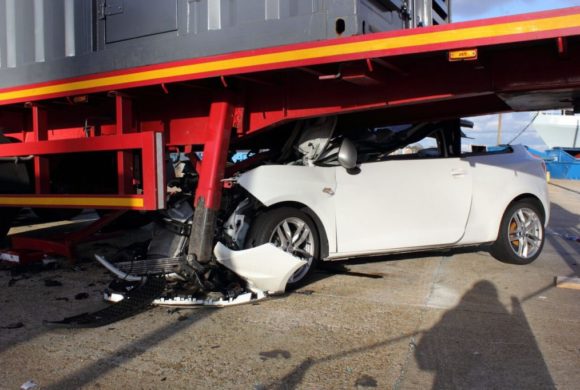Truck accidents were on a steady decline several years ago. Unfortunately, this positive trend has sharply reversed, as laws have became more lenient. Of course, their sheer size makes driving around big rigs dangerous, but when truck drivers experience fatigue, the results can be deadly.
Staggering Statistics
In 2009, truck-related deaths were at an all-time low, and 2,983 truck accidents were responsible for 3,380 deaths. In 2013, the last year that these finalized statistics were available, over 3,500 wrecks resulted in nearly 4,000 deaths. In Tennessee alone, there were 126 truck-related accidents in 2013. Trucking accidents are responsible for one in every seven highway deaths in this country.
According to the U.S. Department of Transportation, driver fatigue is the leading cause of trucking accidents. Of course, there are plenty of additional factors that contribute to large vehicle crashes, but it’s wise for everyone on the road to keep an eye out for drowsy drivers.
Safety Laws
Over the past few years, there have been some modifications to trucking safety laws, but they may be short-lived. In 2013, Federal law reduced the maximum hours a trucker can work each week to 70, from 82. Drivers who hit their limit must take a 34 hour rest period before starting a new work week. This rest-session must include two periods between 1 and 5 am. Drivers may not drive for more than 11 hours each day, which must include a 30 minute break.
As helpful as these laws may be to reducing trucking accident deaths, many trucking industry officials are citing a decline in profits as their reasoning behind their push for a repeal of these regulations. They have also pushed for changes to the 80,000 pound haul limit, along with length regulations that mandate that no truck can haul a trailer over 28 feet. If they get their way, a double-trailer rig could carry trailers that are 33 feet long, making the truck as long as an eight-story building is tall.
Some groups, like the Federal Motor Carrier Safety Administration, are pushing for additional safety measures. Since 2008, they have recommended that drivers get screened for sleep apnea, a condition that is closely linked to sleep deprivation. Unfortunately, due to the high cost of testing, they have recently backed off.
As updates to the laws continue to be debated, safety advocates and truck accident attorneys urge that drivers use caution on the roads.

